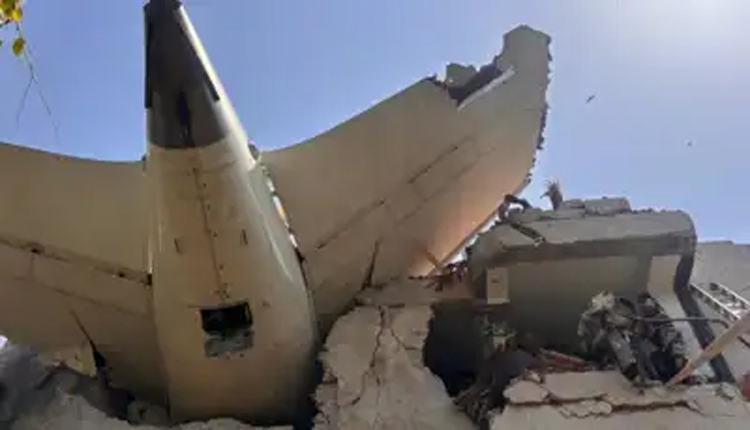New Delhi: In a sharp critique of the initial probe into one of India’s deadliest aviation tragedies, the Supreme Court on Monday described as “unfortunate” the preliminary report’s implication of pilot error in the catastrophic Air India crash near Ahmedabad.
The apex court issued notices to the Centre, the Directorate General of Civil Aviation (DGCA), and the Aircraft Accident Investigation Bureau (AAIB), urging a fair and transparent investigation into the June 12 disaster that claimed 265 lives.
The Boeing 787-8 Dreamliner, operating as Flight AI171 from Ahmedabad to London’s Gatwick Airport, plummeted into a medical hostel complex moments after takeoff from Sardar Vallabhbhai Patel International Airport. Of the 241 passengers and crew on board — comprising 169 Indians, 52 Britons, seven Portuguese, one Canadian, and 12 crew members — only one survived: British national Vishwashkumar Ramesh. Tragically, 19 people on the ground also perished, pushing the death toll to 265.
The hearing stemmed from a public interest litigation (PIL) filed by the Safety Matters Foundation, represented by senior advocate Prashant Bhushan.
Bhushan argued that the AAIB’s preliminary findings prematurely pinned the blame on the pilots, fuelled by misleading narratives in international media. “Pilots and victims’ families approached me, highlighting a mysterious line in the report that suggested pilot fault,” he told the bench of Justices Suryakant and Ujjal Bhuyan. He demanded full disclosure of the Digital Flight Data Recorder (DFDR) and Cockpit Voice Recorder (CVR) transcripts, insisting there was no room for privacy in a matter of public safety.
Justice Suryakant echoed the sentiment, calling the report’s phrasing “very unfortunate” and arguing for confidentiality until a logical conclusion emerges. “Leaking information in bits is irresponsible; maintain secrecy until the probe reaches a fair end,” he remarked.
Justice Bhuyan questioned the push for early public release, noting potential harm if initial accusations prove unfounded. Bhushan countered by referencing the investigative podcast Airline Matters, which, after scrutinising cockpit recordings, concluded the crash stemmed from an electrical system failure causing both engines to shut down — not pilot negligence. A key CVR snippet, where one pilot asks the other, “Why did you cut the fuel?” was misinterpreted, he added, overshadowing systemic issues.
The court acknowledged the probe’s impartiality but stressed avoiding premature judgements that could tarnish reputations. Notices seek responses from respondents within weeks, with the next hearing slated soon. Families of victims, including the deceased pilot’s father, have decried the report for damaging legacies, while calls grow for an independent, court-monitored inquiry to restore faith in aviation safety.
This ruling underscores the judiciary’s role in safeguarding Article 21 rights amid grief and scrutiny. As black box data remains under wraps, the nation awaits answers to prevent future heartbreaks.



Comments are closed.